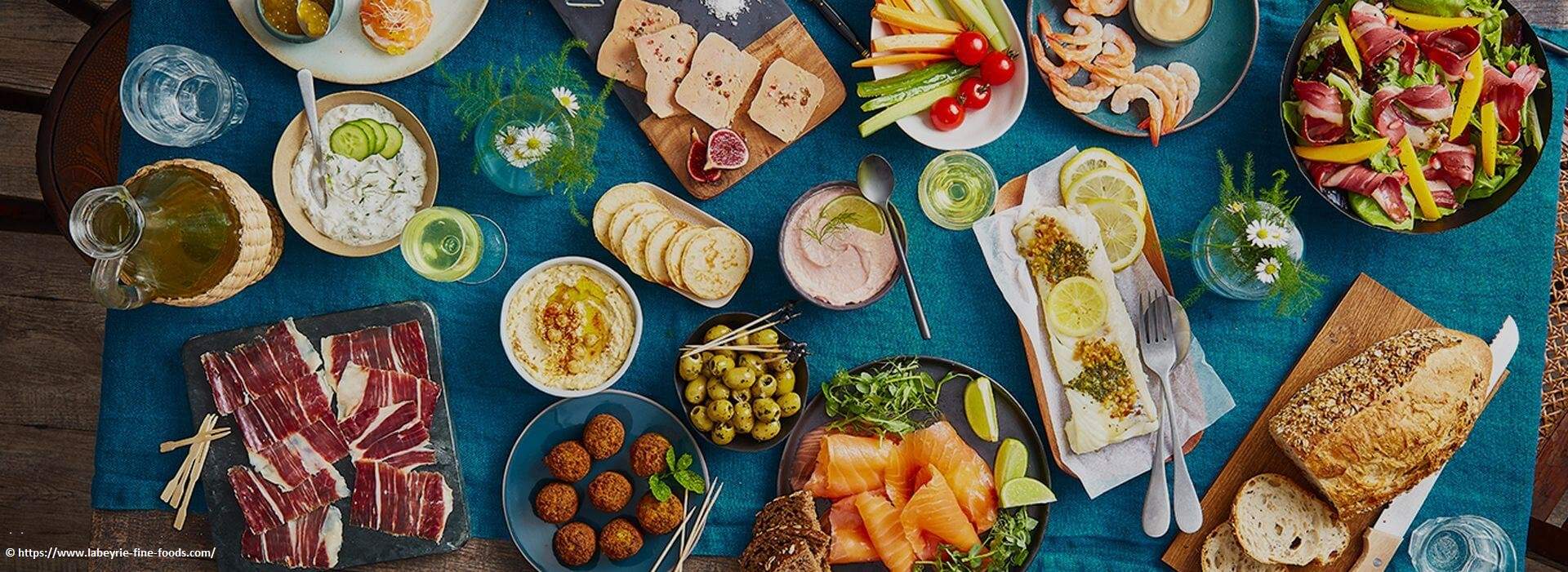The group, which was founded in 1946, has 17 factories in Europe and has committed to greater social responsibility at every step of the production process.
A key player in the French agri-food sector, in 2020, Labeyrie Fine Foods (which owns Labeyrie, Blini, L’Atelier Blini and Père Olive, among other brands) reorganized the group and developed a new strategic road map. “CSR (N.B.: Corporate Social Responsibility) has become one of the foundations of our strategy,” explains Jacques Trottier, co-president of the group, which has 17 industrial plants in Europe, including 14 in France, 2 in the U.K., and one each in Belgium and the Netherlands. “There were plenty of CSR initiatives in the past, but they were taken individually, at the brand level. Now we have a global approach at the group level.”
The group, which specializes in smoked salmon and foie gras, generates nearly €1 billion in annual revenue and has found a raison d’être[1] “Sharing a responsible passion for food.
“Our vision is that we can no longer oppose the pleasure of fine food with social and environmental responsibility. Our role is to reconcile those two goals and to turn responsibility into a flavor enhancer,” Gaëlle Ouari, director of Communication, CSR and Digital declares.
Recyclable Packaging
In terms of respecting the environment, the group has committed to reducing water use at its production sites by 10%, and gas and electricity use by 8%. Packaging is also a key issue for a business with over 5,000 references in its catalogue. “We are working on eco-design, so that by 2025, 100% of our packaging will be recyclable, and two-thirds of it will be made from recycled materials,” Gaëlle Ouari adds.
Although the firm, which has 4,600 employees, is best known for its regional specialties and seafood products (salmon, cod, shrimp and herring) it also has a vegetarian branch that develops blinis and spreads – generally based on olives, chick peas or avocadoes. “To live up to consumers’ expectations and to diversify our range, we are aiming for a progression in revenue from our plant-based specialties of 15 to 25% by 2025,” Gaëlle Ouari explains.
The company is also attentive to animal well-being and has committed to having 100% of their strategic animal ingredients be labelled by 2025.
[1] France’s “PACTE” Law, which went into effect in 2019, creates a legal innovation by introducing the concepts of “raison d’être” and of “companies with a mission” into French law. The evolution comes in response to new expectations for firms, which are now being seen as key players in both the social and environmental fields.
